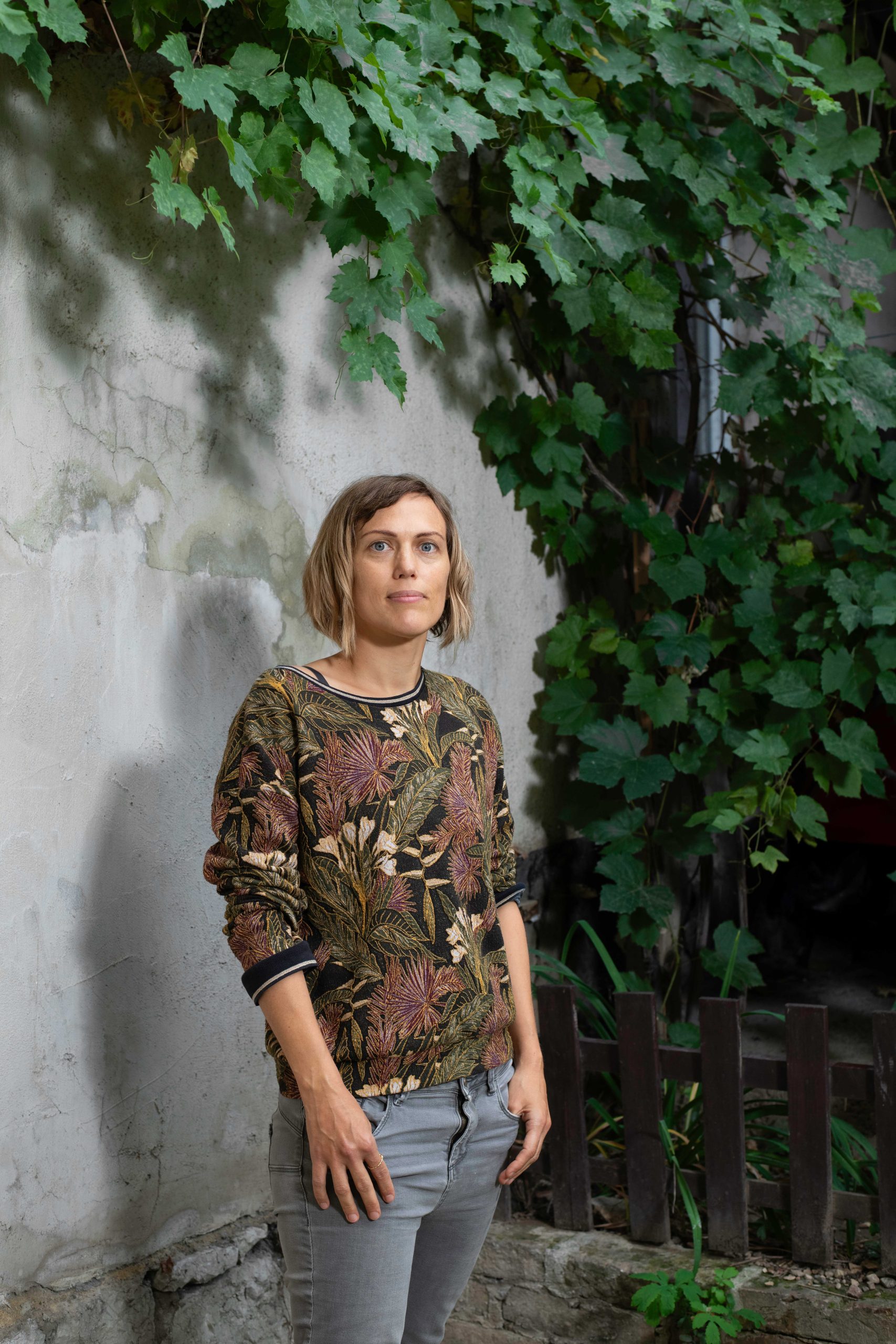Béatrice Lartigue
Artist
Spring 2026

- New Media
- Boston
“Weak Signals is a research project combining art, science and technology. Through my residency, I intend to question and materialise in a sensitive way the disappearance of birds and the fragility of their ecosystems.”
Since 2008, I have been working on projects at the intersection of art, science and technology. My work explores the materialisation of invisible physical events, by immersing visitors in a space whose rules are partly written and partly in the making. A critical perspective on the utilization of technology in a fragile environmental context guides my practice.
Béatrice Lartigue is a french visual artist based in Toulouse. She is co-founder of the interdisciplinary collective Lab212. Her works were exhibited at the Barbican Centre (London), the Miraikan Museum (Tokyo), le Centre Pompidou (Paris), la Gaîté Lyrique (Paris), the DMuseum (Seoul), the Times Art Museum (Beijing), Photo Elysée (Lausanne). Béatrice Lartigue has won several international awards, including from the Sundance Film Festival (New Frontier Selection: Notes on Blindness), the Lumen Prize (Performance Award: Portée/), the GIFF Festival (Philémon). She teaches Media and Interaction Design at Gobelins (Paris) and regularly leads workshops in institutions such as ECAL (Lausanne), Beaux-Arts (Toulouse).
Weak Signals is a research project that investigates the collapse of bird populations in Massachusetts, through the lens of new technologies. How can a latent phenomenon be staged within a collective artistic installation? In what ways can it be given “form” and endowed with a certain “weight”?
The Weak Signals project is born following the discovery of “Silent Spring”, a book by the American biologist Rachel Carson. This seminal 1962 work critically examines the relentless exploitation of the living world and exposes the resulting environmental consequences (soil contamination, disappearance of insect populations, and disruptions to natural equilibria). The book opens with the depiction of a silent spring, one in which the songs of birds, now vanished, can no longer be heard.
—
Through this period of exploratory residency, my objective is to further develop my artistic practice at the intersection of art, science, and technology. For over 15 years, my work has been dedicated to rendering visible imperceptible or intangible phenomena – such as the force of the wind (Nebula, 2018), atmospheric pollution (The Big Smoke, 2023), or electromagnetic waves (Ombres Blanches, 2023). The installations I develop emerge from the confluence of multiple disciplines (music, architecture, electronics…) and the collaboration with diverse fields of expertise (scientists, engineers, artists…).
—
During this exploratory residency, I seek to investigate: The writing of sensory experiences and the spatialization of installations in relation to the visitor’s body, the notions of transmission and empathy, and human-machine interaction. Additionally, data models, transcription, expressivity and physicality of data, sonification, and data physicalization. I wish to transcribe the key stages of my research residency in a ‘residency journal’, which will be shared throughout my stay. Finally, in the concluding phase, I intend to embody the entirety of my reflections and research within a new artistic installation.
On the one hand,
In North America, bird populations have experienced a significant decline over the past few decades: nearly three billion birds have disappeared since 1970, representing an approximate 25% reduction in the total population. However, conservation efforts are underway to reverse these trends, and Massachusetts is renowned for its conservation areas and bird sanctuaries. The state has, for instance, implemented programmes to preserve salt marshes and wetlands.
- The Boston Birding Festival focuses on birdwatching, wildlife conservation, and raising public awareness.
On the other hand,
The Massachusetts ecosystem, and particularly the city of Boston, with its wealth of research institutions and cultural initiatives, provides fertile ground for the development of new synergies. Indeed, the city is home to some of the world’s most prestigious academic institutions.
- The MIT Media Lab is a research centre at the intersection of the arts, technology, and Its mission is to create new technologies and systems designed to address complex challenges – while exploring how these technologies interact with society, the economy, and the environment.
- Northeastern University is committed to promoting an interdisciplinary approach to education and research, with a strong emphasis on creative innovation and critical thinking.
In partnership with

Les Gobelins
https://www.gobelins.fr/

Stereolux
https://stereolux.org/

Boston Birding Festival

MIT Media Lab-Future Sketches
https://www.media.mit.edu/groups/future-sketches/overview/

CAMD Northeastern University



